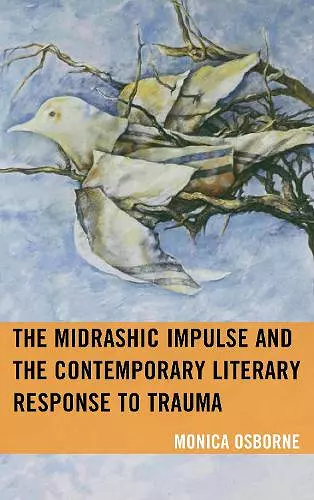The Midrashic Impulse and the Contemporary Literary Response to Trauma
Format:Hardback
Publisher:Bloomsbury Publishing PLC
Published:6th Dec '17
Currently unavailable, and unfortunately no date known when it will be back

Since the end of World War II we have witnessed countless artistic responses to the Holocaust, yet we remain unable to adequately address the atrocities. While Theodor Adorno later rescinded his comments on the barbaric nature of writing poetry after Auschwitz, The Midrashic Impulse and the Contemporary Literary Response to Trauma begins with the possibility that he was right—that his admonition against poetry warns against employing representational modes that transgress the boundaries of the ethical when it comes to the Holocaust. There is a language, other than the language of representation, with which we might speak authentically about such atrocities. This study explores what it means for the world of literature to renounce the language of representation and retain the language of witness. Drawing on the work of Emmanuel Levinas, Maurice Blanchot, Geoffrey Hartman, and others the book focuses on the increasing tendency of contemporary writers to rely on non-representational approaches to storytelling in the context of trauma. This tendency is named the “midrashic impulse” given its similarity to ancient rabbinic approaches to the silences of the Hebrew bible through the creation of Midrash.
By aligning traditional Midrash with contemporary modes of interpretation by Levinas, Agamben, and others, Monica Osborne has significantly enlivened the dialogue between Jewish thought and post-Holocaust, North American fiction. The Midrashic Impulse is alert at every turn to the gaps, silences, and wounds that mark a text, and opens to view many previously unnoticed cross-cultural connections between scriptural and secular literatures. -- Eric J. Sundquist, Johns Hopkins University
Monica Osborne has drawn upon an ancient Jewish mode of thought to present a profound and deeply insightful analysis of American Jewish literature and the contemporary literary response to trauma. Her study exemplifies an understanding of how and why the literary response to historical trauma opens up insights that can be accessed only through literature—but with a difference, the difference of the uniquely Jewish mode of midrashic thought. This is a must read for students and scholars of Holocaust literature. -- David Patterson, University of Texas at Dallas
Beautifully written, Monica Osborne’s book demonstrates the power of literature, not necessarily to heal, but to connect us to trauma, without doing further violence to those it encompasses. Osborne’s adept analyses of the literary texts invite the reader into the instructive world of midrash, rendering these ancient conversations accessible to teachers and students both in and beyond Jewish studies. -- Claire Elise Katz
ISBN: 9781498564908
Dimensions: 236mm x 162mm x 20mm
Weight: 445g
218 pages